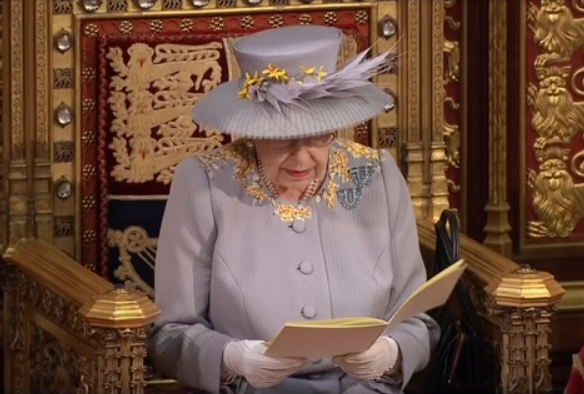This week, the UK government outlined its legislative intentions for the new parliamentary session in Westminster. The Queen’s Speech included plans “to strengthen and renew democracy and the constitution” and “restore the balance of power between the executive, legislature and the courts”. A Judicial Review Bill will be published.
The culmination of a two-year process
Introducing the Bill will be the culmination of a process that began in 2019 with a manifesto commitment “to guarantee that Judicial Review is available to protect the rights of the individual against an overbearing state, while ensuring that it is not abused to conduct politics by another means or to create needless delays”.
That promise led the government to establish The Independent Review of Administrative Law in July 2020. The Review was conducted by a panel of experts chaired by Lord Faulks QC and its report and recommendations published in March.
At the heart of the Faulks Review is a long-running ‘tug-of-war’ between those maintaining that parliament and the government should be regulated by political scrutiny (ultimately the ballot box) with the courts ensuring that the letter of the law and due process is followed, and those contending that the law and the judiciary should play a greater role in ensuring that parliament and government respect fundamental rights and values.
Those falling into the latter camp have sometimes been characterised as indulging in activism resulting in judicial overreach that undermines the efficacy of democracy, politics and good administration.
But those worried that the rights and values of some individuals are not being adequately respected or represented by a ‘populist’ political process have been alarmed that the jurisdiction of the courts (and the rule of law) may be under threat of unacceptable constraint, or in some cases, at risk of being ousted altogether.
The Faulks Review proposals and the government’s response
Overall, the Faulks Review did not uncover fundamental problems with judicial review and did not recommend major changes or codification of the system. Its main proposal was to remove an extra tier of review for a particular category of immigration cases already subject to senior judicial determination.
It also recommended that parliament should legislate to make clear that, in appropriate cases, a court could postpone the effect of an order quashing an unlawful act: so as to allow time for the decision maker to cure the defect, or for parliament to legislate in order to clarify the position.
But the report emphasised that “any changes should only be made after the most careful consideration, given the important role that judicial review plays in our constitutional arrangements and, in particular, in maintaining the rule of law.”
The government responded quickly last month. Its proposals, which were subject to a short consultation, go further than the Faulks Review and include the suggestion that legislation is required to make it clearer when parliament intends to “oust” the jurisdiction of the courts.
The rise of Judicial Review
There is no argument that over the last quarter century there has been a tremendous expansion of Judicial Review.
Aspects of international relations and foreign policy, defence, national security, even the prorogation of parliament itself which for centuries were not regarded as justiciable have since been the subject of adjudication by the courts. But the scale of government power, regulation and intervention has also grown enormously.
Perhaps it is no great surprise that increasing exposure to legal scrutiny, occasional judicial criticism and even the placing of legal limits on the actions of government and public authorities has been a source of frustration and resistance for those subjected to it.
But judicial review has arguably contributed to better and more transparent decision-making and to greater accountability and fairness in public policy and decision making. It has frequently vindicated democratically conferred legal rights that might otherwise have been overridden and brought injustice without remedy.
The Faulks Review acknowledged that disagreement is hardwired into our culture. “Our adversarial system of justice is premised on disagreement; our judicial system, unlike many continental systems, allows for dissent at every level; and our system of government is based on government and opposition, with the two sides facing each other across an aisle in the House of Commons that is a symbolic two swords’ lengths in width.”
We can expect continued controversy as the Judicial Review Bill makes its journey towards Royal Assent. The main elements of the Bill are subject to the outcome of consultation, but the hope and expectation must be that parliamentarians will scrutinise the government’s legislative proposals closely. In that way the right balance of executive, legislative and judicial power ought to be achievable.
If you’re thinking of bringing, defending or intervening in a Judicial Review or would like advice on public law and regulatory affairs we can help. You can read more about our team here, or contact Nicola Mead-Batten directly at n.mead-batten@capitallaw.co.uk.



